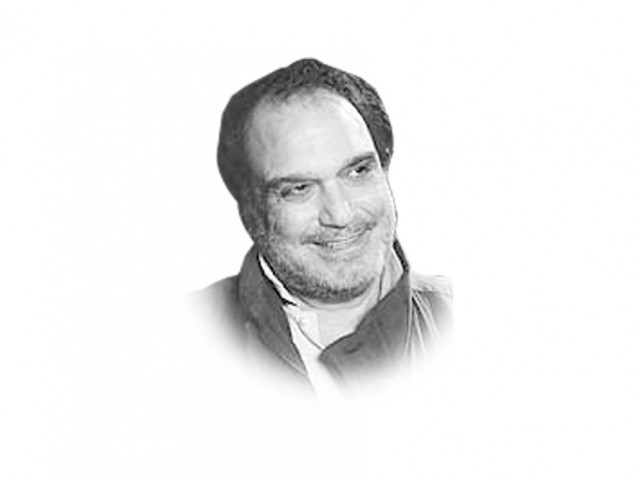Political parties and terror
Succumbing to terror kills 2 birds with one stone. Appeases Taliban, pleases army. Hence, improves chances at polls.

Political parties and terror
The concept of the Long March contains the threat of violence in it. Last time Nawaz Sharif did it against the PPP, the GHQ got upset and chose to do what he wanted. Before that the ‘wukla’ — in Pakistan the word embraces more than the word ‘lawyer’ would — had made the GHQ ditch General (retd) Pervez Musharraf. The hidden promise of violence lurks not too deep beneath the surface of political discourse. If you don’t believe, watch the TV discussions.
Political parties are shaped by two overarching factors: nationalism and ideology. Nationalism is all about ‘painful birth’ of the state and about someone who made it painful. An enemy is designated by arousing fear about his ill-intentions. To fight this enemy, unity is sought to be coercively aroused in a diverse population not too willing to unite. If this nationalism is revisionist — pledging change of territory vis-à-vis the designated enemy — the state becomes what is called ‘national security state’. Such a state is dominated by the military.
There is no doubt that the political parties do direct or indirect obeisance to the military. The PPP is sitting in its lap to secure itself against toppling by a thousand cuts by the rightwing media and Nawaz Sharif. Nawaz Sharif has faced intraparty resistance to two of his statements — on free trade with India and unilateral withdrawal from Siachen — which the army did not like. The MQM balances its ‘secularism’ by periodically appealing to the “good generals” to impose martial law. The ANP has changed its line on the drones to be on the right side of the army.
But there is also the third factor that shapes the character of the political parties. And that is terror. The PPP leaders are unsafe and have to go to interior Sindh to make public appearances. Nawaz Sharif is less scared because of his ‘deal’ with the Sipah-e-Sahaba. In 1999, it nearly killed him through Riaz Basra, leader of the Lashkar-e-Jhangvi who was buried wrapped in a Sipah-e-Sahaba flag when he was killed in 2002. In 2012, the Sipah-e-Sahaba is a PML-N ally in south Punjab. Imran Khan scored a point against Nawaz Sharif by opposing unilateral withdrawal from Siachen.
Succumbing to terror kills two birds with one stone. It appeases the Taliban and pleases the army, which has gone anti-American. Hence, there are two buttons to press to improve your chances at the next polls: anti-American and pro-Taliban. Parliament cocked its ear in a canine fascination to accents flowing from the GHQ before it botched the country’s foreign policy. Every party has its ducks in a row for the elections; and, sad to say, the ducks are pretty identical.
If the political parties are shaped by the above three overarching factors, why are they verbally eviscerating one another? Because at this point democracy begins to lend itself to fragmentation through elections. The Taliban are pushing an interpretation of religion that can be enforced only after a process of re-tribalisation.
Under the tribal system, election effectively means physical exclusion of the opposition, as observed in the early elections held among the various tribes in Africa. In Zimbabwe after the first election, Shona winners went around killing the Ndebele, saying: “They lost, didn’t they”?
Published in The Express Tribune, June 10th, 2012.












1724319076-0/Untitled-design-(5)1724319076-0-208x130.webp)


COMMENTS
Comments are moderated and generally will be posted if they are on-topic and not abusive.
For more information, please see our Comments FAQ